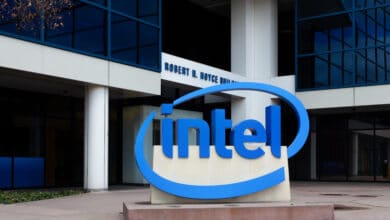
The EU Commission has been successful in court. The executive body of the European Union received confirmation from the European Court of Justice that it had imposed a fine of millions of euros on a number of well-known optical drive manufacturers. Due to illegal collusion, the Commission demanded fines from Samsung, Toshiba and other companies.
Drive manufacturers to pay a total of 116 million euros in fines
The allegations at issue now appear to have been confirmed to a large extent by the European Court of Justice. The EU’s highest court found that Sony Optiarc, Sony, Toshiba Samsung Storage Technology and Quanta Storage were right to pay a fine totaling 116 million euros. The focus of the whole matter is a joint violation of European competition law by the aforementioned manufacturers. They are alleged to have deliberately formed a cartel. In its ruling, the ECJ confirmed the accusations against Sony and the other manufacturers. However, it also saw reason to question the actions of the EU Commission.
Proceedings against drive manufacturers from 2012
Especially at the EU level, the official mills sometimes grind extremely slowly. It is therefore hardly surprising that the actual proceedings, which have now been heard by the ECJ, were initiated by the EU Commission back in 2012. After three years of work, the responsible guardians of antitrust law were able to determine that violations had occurred. In the years 2004 to 2008 in particular, the well-known manufacturers are said to have entered into agreements with each other that amount to a cartel. In particular, this involved drive technology for computers from HP and Dell. The two world market leaders in PC technology regularly issued invitations to tender to find manufacturers for their own drives. The drive manufacturers are said to have coordinated their responses to the invitations to tender with each other. In doing so, they wanted to achieve the best possible result for themselves in the form of a high price. This was followed by a fine in the hundreds of millions from the EU Commission.
Drive manufacturers took legal action
Of course, the manufacturers did not put up with this approach. Without further ado, they therefore initially moved to the Court of the European Union. There, the court proceedings took place in 2019. However, after the court of first instance dismissed the action and thus confirmed the fine, the manufacturers appealed and immediately went before the ECJ. They were even able to achieve a small success here. Unlike the Court of Justice of the European Union, the ECJ considered the accusations of the drive manufacturers to be justified, at least to a certain extent. In particular, the accusation on the part of the EU Commission that there had been further agreements in violation of antitrust law beyond the known agreements was not sufficiently substantiated in the view of the ECJ.
Nothing changes in the outcome
However, the ECJ’s ruling only has positive implications for the reputation of the manufacturers in question. After all, according to the court, there should be no change to the fine imposed by the EU Commission. Other companies, such as Intel, have had better luck this year. Consequently, the EU’s highest court still seems to regard the violation of antitrust law as serious. However, this ruling is not yet legally binding. Finally, Sony and the other alleged antitrust violators now have two months and ten days to appeal the ruling. If they do not exercise this right, the payment of a total of 116 million euros is a done deal. This means that the EU Commission has finally scored another success in competition law. The highest European executive body is also currently taking action against Apple.




No replies yet
Neue Antworten laden...
Gehört zum Inventar
Beteilige dich an der Diskussion in der Basic Tutorials Community →